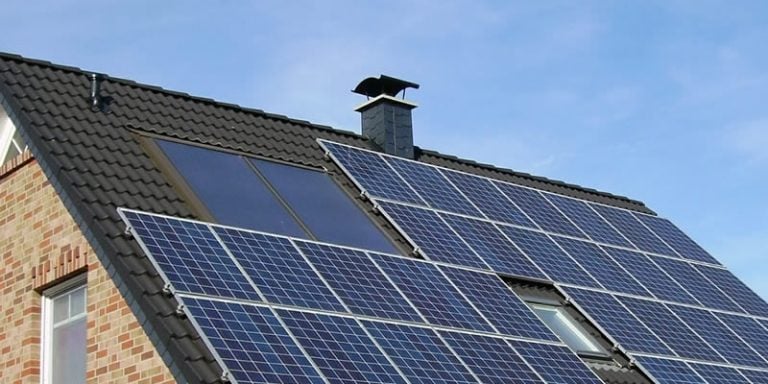The Hidden Gems: Lesser-Known Factors to Consider When Buying a Waterfront Home

Table of Contents
The idea of buying a waterfront home can be incredibly enticing. The mere thought of waking up to the sound of waves or enjoying a serene sunset over a lake paints a picture that’s hard to resist.
While the allure of living near water is undeniable, there are considerations that extend beyond the obvious. In fact, overlooking the less common aspects could potentially lead to regret or unexpected challenges down the line.
The Depth of Water Access
The term ‘waterfront’ can be deceptively simple. Most buyers understandably think about how close the property is to the water, but the depth of water access is a multifaceted issue that requires careful consideration.
Depth involves not only how deep the water is near your property but also how easily and reliably you can access it for the activities you value, be it fishing, boating, or swimming.
Availability Throughout the Year
When considering a waterfront property, one key question to ask is how the water access changes throughout the year. In tidal areas, for instance, low tide can render waterways impassable, turning your waterfront view into a mudflat view temporarily.
Similarly, some lakes and rivers can experience significant water level fluctuations due to seasonal variations, droughts, or water releases from upstream dams.
This could mean that your boat dock becomes unusable or that your picturesque lakefront turns into a less appealing muddy stretch during certain times.
This could also mean that those beautiful picturesque trails for running or biking will not be available all year round. Just ask yourself: why do you want to live by the water, and does this place provide that for you.
To safeguard against such scenarios:
- Consult local environmental agencies or water boards about historical water levels.
- Talk to neighbors and local fishermen to get first-hand insights into seasonal water conditions.
- Consider installing an adjustable dock that can be modified according to the water level.
Restrictions and Regulations
Ownership does not necessarily grant you carte blanche access to the adjoining water. Laws differ from place to place, and zoning regulations, local ordinances, and even homeowners’ association rules can severely restrict what you can do on your waterfront property.
- Zoning Laws: These can affect your ability to build structures like docks or boat houses close to the water.
- Local Ordinances: These might control activities like jet skiing, fishing, or other water sports.
- Community Agreements: Sometimes, waterfront is considered communal in neighborhoods, meaning you’ll have to share access points or docks with neighbors.
Consult with local authorities, check all rules and guidelines, and even consider legal advice to fully understand your rights and limitations.
Underwater and Above-Ground Rights
When you buy a waterfront property, the transaction might not include the ownership rights to what’s under the water or even above it, up to a certain altitude. These aspects can impact everything from your ability to fish to your general privacy.
Mineral and Water Rights
Owning a waterfront property doesn’t automatically grant you rights to the minerals beneath the waterbed or the right to use the water for specific purposes. Two types of rights are generally associated with waterfront properties:
- Littoral Rights: These typically apply to properties adjacent to large, navigable bodies of water like seas and lakes. You may own the land up to a certain point, usually the high-water mark.
- Riparian Rights: These apply to properties adjacent to flowing waters like rivers and streams. Here, you may own up to the middle of the waterway, but this varies by jurisdiction.
Understanding these terms can help you determine if you can construct structures in the water, extract minerals, or engage in commercial/recreational activities like fishing.
Air Rights
Air rights may seem trivial, especially in rural settings, but they become important in urban or busy waterways.
For example, you might find the constant overhead noise of seaplanes to be a disturbance, or you could discover that commercial boats have the right to navigate close to your property, affecting your privacy and peace.
- Check Federal Aviation Administration (FAA) regulations if the area has frequent seaplane activity.
- Consult local maritime laws to find out if commercial vessels have any rights that could affect your property.
By fully understanding the limitations and possibilities of air rights, you can better assess whether a waterfront property aligns with your lifestyle and comfort level.
Environmental Considerations
Erosion and Flood Risks
Erosion can significantly change the layout of your property over time. Moreover, waterfront properties are naturally susceptible to flooding. Consider working with an environmental consultant to understand the risks and remedial actions you can take.
Seasonal Changes and Local Fauna
Depending on the location, you might have to deal with seasonal bug infestations or migratory birds that make your property their temporary home. It’s not just about the view; it’s about coexisting with the natural world around you.
Insurance and Maintenance
Specialized Insurance Needs
Because of the heightened risks associated with waterfront properties, including flooding and natural disasters, insurance can be a complicated and costly affair. Standard homeowner’s insurance won’t cover all your needs. You may need additional policies, such as flood insurance.
Elevated Maintenance Needs
- Salty air can accelerate corrosion: If you’re by the sea, the salt air can wreak havoc on everything from your home’s exterior to your car.
- Increased humidity can cause mold: Waterfront properties tend to be more humid, which can lead to mold and mildew issues.
- Dock and seawall maintenance: If your property includes a dock or seawall, these will require regular upkeep.
Resale Value and Long-term Investment
Market Trends and Volatility
The allure of waterfront living can make these homes a solid investment, but they’re also subject to market volatility. Look at long-term trends and consult with a real estate agent who specializes in waterfront properties.
Rental Possibilities
If you plan to use the property as a secondary home, consider its rental potential. Factors like proximity to tourist attractions can make the property more desirable and serve as an additional income stream.
Wrapping Up
Purchasing a waterfront home is more than just acquiring a piece of paradise; it’s a complex decision that requires thorough research and consideration of multiple lesser-known factors.
By paying attention to issues like water depth, legal rights, environmental factors, and insurance and maintenance needs, you can make an informed choice that you’ll be happy with for years to come.
If you’ve considered the typical “Waterfront Home: Pros and Cons,” delving into these hidden gems of information will provide you a comprehensive view, turning your dream waterfront home into a rewarding reality.






